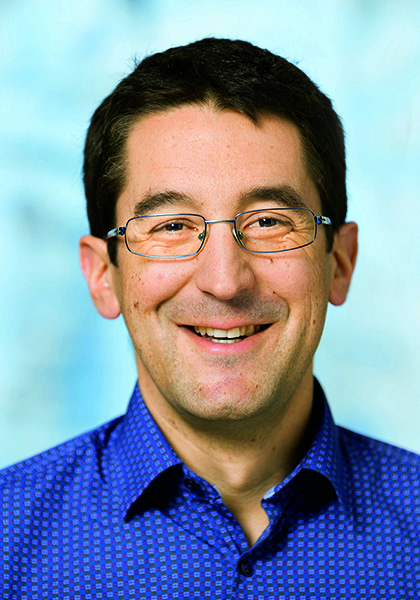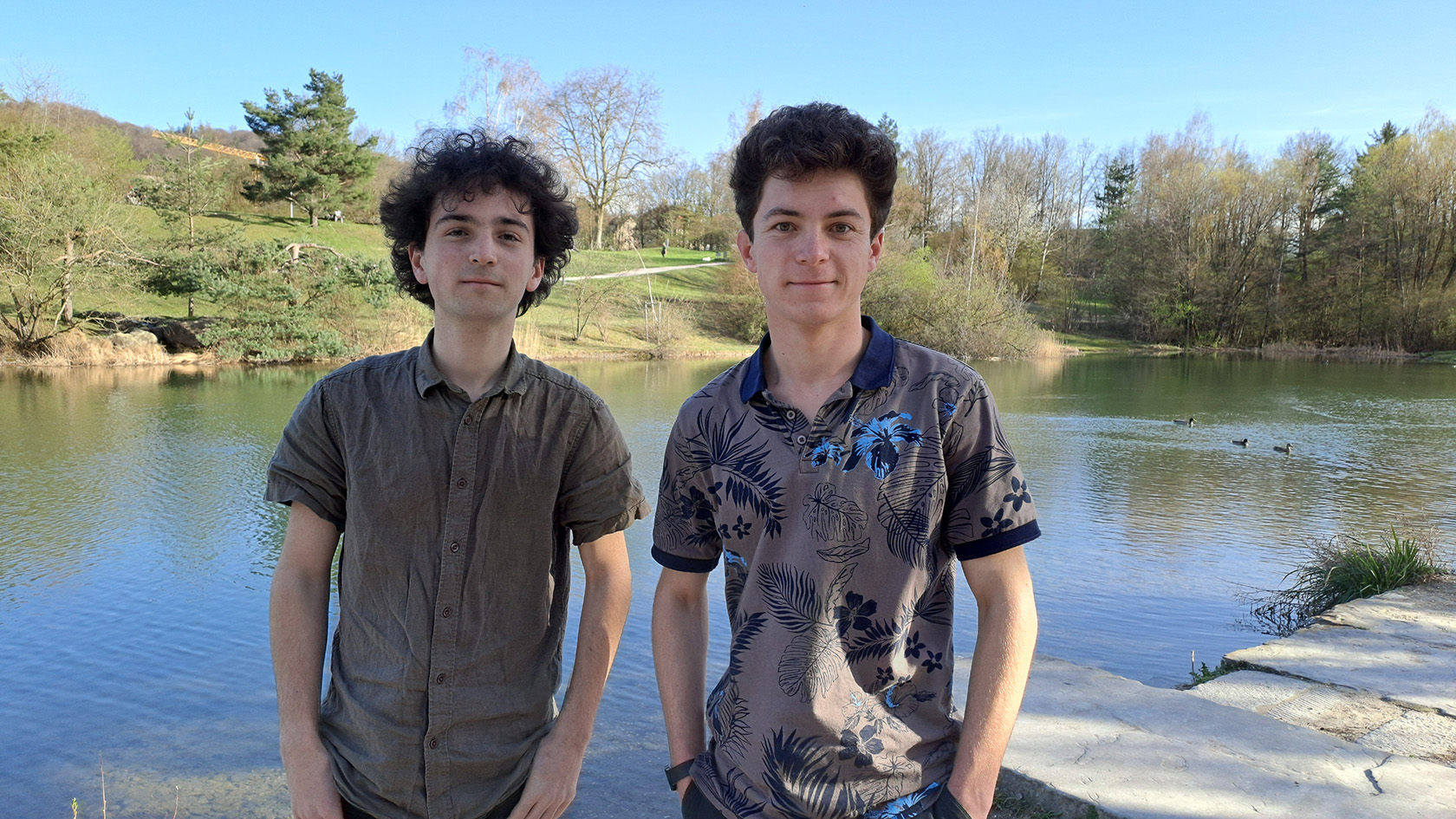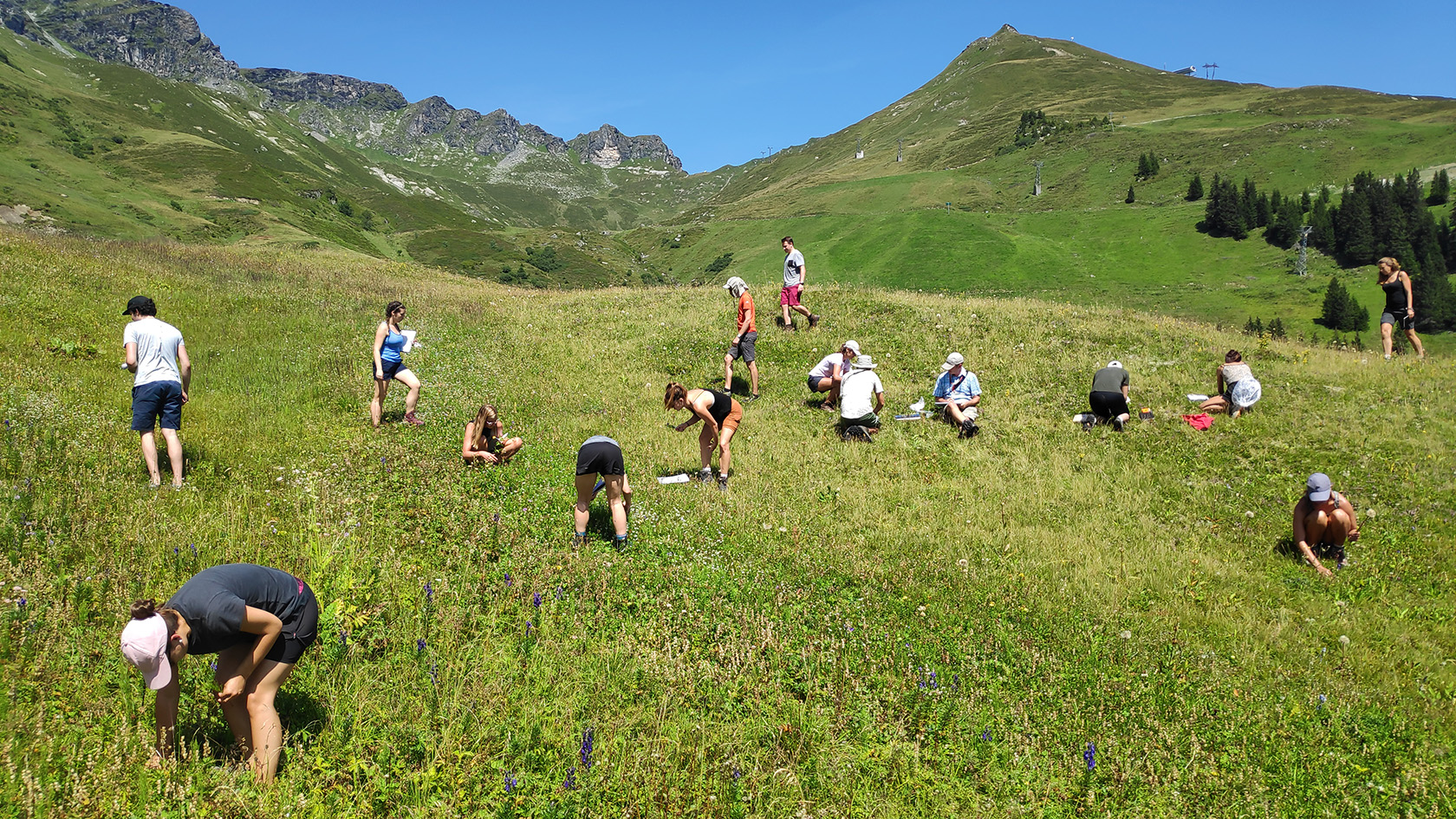Master’s Program in Biodiversity to Launch in the 2024 Fall Semester
Last Fall Semester, 75 students embarked on the new Bachelor’s program in biodiversity as a major and 69 as a minor at the University of Zurich’s Irchel Campus. Among them are 20-year-old Nicolas and his brother 19-year-old Florian Hatt from Wetzikon near Zurich. Both are interested in topics such as ecology, habitats and species biodiversity, but were keen to move beyond traditional biology that focuses more on cells and molecules. “When I heard about the biodiversity program at a study information day, I thought: that’s for me! Biology that deals with higher-level systems: biodiversity, the environment, evolution,” says Nicolas Hatt. His brother Florian nods.
A broad understanding of biological diversity
Equally enthusiastic is Florian Altermatt, UZH professor of aquatic ecology at the Department of Evolutionary Biology and Environmental Studies and one of the two study program directors. “We’ve got off to a fantastic start and there’s a great deal of interest from students, most of whom made a very conscious decision in opting for this program.” This is therefore a good basis for the Master’s program in biodiversity, which launches in the upcoming Fall Semester. The aim of the program, explains Altermatt, is to give students a broad, scientific understanding of biodiversity, and its patterns, processes, and functions.
The skills needed to scientifically address the huge challenges in species protection and to play an effective part in preserving biodiversity are more in demand now than ever. Besides climate change, biodiversity loss is the most pressing environmental problem facing the world today – and yet until now climate change has dominated the political and public agenda. “We urgently need to act. Because if important species go extinct, whole ecosystems are jeopardized. And if we keep doing what we’re doing, in the long term we’re putting the very foundations of human existence at risk,” warns Altermatt.

The demand for qualified biodiversity experts is steadily rising – not only in environmental and planning offices, but also in large companies, for example in reinsurance.
Making a positive difference
Florian Hatt also believes that things are not looking good for biodiversity. “We’re currently experiencing the greatest global species loss in the history of humanity. And compared with other countries, Switzerland is not faring well at all.” The country has one of the smallest protected land areas and one of the longest Red Lists of Threatened Species in all of Europe,” explains Florian Hatt. “That’s why it’s even more important to turn things round,” says Nicolas Hatt, “I hope that through this program I can make a meaningful contribution.”
The brothers’ interest in nature is to some extent in the genes as their father is a botanist and their mother studied zoology. The family has been actively involved in environmental and nature conservation for many years. “For us, it’s always been a fascinating hobby,” says bird lover Nicolas Hatt, who studied the habitats of white-throated dippers in the local Chämptnerbach river for his baccalaureate project, for which he won the special prize from Swiss Youth in Science with the rating ‘outstanding’.
Interdisciplinarity and systematics
As well as core subjects such as mathematics, chemistry and physics, students learn about the latest concepts in ecology, evolutionary and behavioral biology, and the environmental sciences. Interdisciplinarity also plays a key role. “The study program is broadly supported. Some 20 professors developed the curriculum in a participatory process. From the very beginning, the process involved representatives of political science, communication, law and economics, as well as natural scientists,” says Altermatt. A great deal of time was therefore spent preparing the course. The result is a broad, cross-disciplinary program comprising block courses, field courses and special lectures on topics such as sustainability, environmental ethics, environmental policy and entomology, which primarily take place in the specialized study during the 5th and 6th semesters.
Florian and Nicolas Hatt, both in their 2nd semester, are pleased that the mathematics and natural sciences core modules are largely behind them. Their study program now focuses more strongly on topics of organismic biology. “The module ‘Habitats in Switzerland’ which is run by Florian Altermatt is really fascinating. It’s the highlight of the week,” says Florian Hatt. He says he always learns something new in the lecture. “This knowledge opens your eyes to a lot of things outside in nature that you didn’t see before,” he says. His brother adds: “We already knew quite a lot. But now we can put that sometimes disjointed knowledge into a systematic framework. The course has given us an overarching structure that we didn’t have before.”
A growing need for experts
Ecology, evolutionary biology and environmental sciences have long been of great importance at UZH. Two of the 13 current University Research Priority Programs (URPP) – Global Change and Biodiversity and Evolution in Action: From Genomes to Ecosystems – are devoted to these disciplines. The former has co-organized the World Biodiversity Forum in Davos with the bioDISCOVERY international research network since 2020. At the international conference, researchers and practitioners discuss how species loss can be stopped and ecosystems protected. UZH also operates research stations in various regions of the world and UZH researchers regularly publish relevant works in the most prestigious journals.
“The new biodiversity study program is an important step in communicating what we know to the outside world – to public sector bodies and policymakers and to business and society,” says Florian Altermatt. For many companies the issue of biodiversity offers opportunities to stand out by championing environmental and species protection. Also, there is growing regulatory pressure, both at national and international level. “Biodiversity is a complex and interconnected field that affects many different areas of work and life. The demand for qualified experts is steadily rising – not only in environmental and planning offices, but also in large companies, for example in reinsurance,” explains Altermatt.
Advocating intact nature
Nicolas and Florian Hatt are still vague when it comes to their future careers. The most obvious choice would be to go on to study biodiversity at Master’s level after the Bachelor’s degree. One thing’s for sure, though – they will continue to campaign for species, habitats and the environment. They believe that for there to be a rethink among policymakers and the public, one particular point needs to be emphasized: that preserving nature also gives something back to people. “We all benefit from intact nature, but the public is completely unaware of many of these so-called ecosystem services,” says Nicolas Hatt. He is referring to high-quality air, clean water, fertile soil and nature reserves as recreational spaces. Florian Hatt adds: “Many economic systems that we currently use harm the environment and won’t work for us humans in the long term.” But the public debate mostly just revolves around bans and restrictions. “The preservation of ecosystems opens up myriad possibilities. It’s a chance to build a future worth living.”

